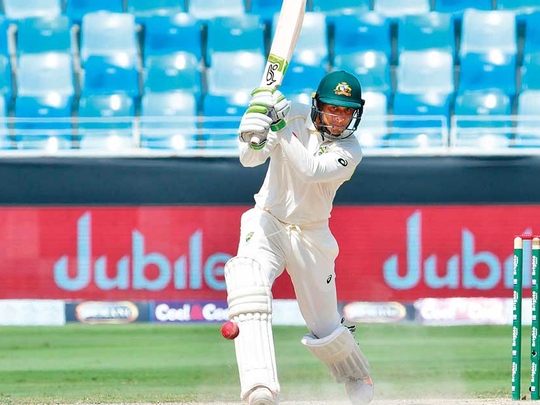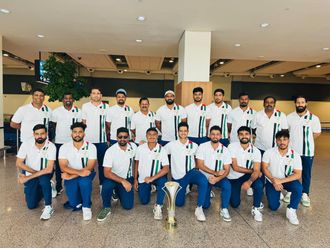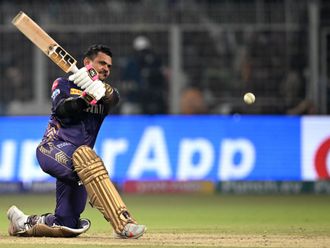
Dubai: Australian opener Usman Khawaja surely knows how to lift a team to great heights much in the same manner he can steer an aeroplane to high altitudes. It is his cricketing intelligence, backed with his skills, that piloted Australia to a draw from imminent defeat against Pakistan in the first Test at the Dubai International stadium.
Khawaja, a qualified commercial pilot, completed a bachelor’s degree in Aviation before he made his Test debut. The steely nerves required to fly an aircraft were very much at play as he batted for a total of 767 minutes of the Dubai Test match during his two innings against all odds.
In the first innings, he scored 85 by staying at the wicket for 243 minutes, and in the second, he played a marathon knock of 141 through a 524 minutes stay under pressure to ensure the draw. These knocks are extraordinary in many ways because Khawaja, who was born in Pakistan, had always struggled to get runs on sub-continent type of wickets.
From the moment he boarded the flight to UAE, his mind was working on how to be successful on sub-continent wickets. Up until the first Test at the Dubai International Stadium, his highest score on sub-continent wickets was 26 and he went into this series with a pathetic average of 14.62 from his previous nine innings in Asia.
The turnaround was complete as in the Dubai Test, Pakistan found Khawaja the toughest batsman to dismiss.
- Usman Khawaja » Australian opener
Khawaja revealed how he transformed his short stays at the wicket to becoming the batsman to play the longest fourth innings for Australia and also earn the honour of second-longest innings in the history of cricket after England’s Mike Atherton’s 645 minutes at the wicket against South Africa at Johannesburg in 1995.
“It is all about hard work,” Khawaja said, before elaborating how he did it. “[A] lot of work goes into playing cricket at the highest level. I have worked as hard as anyone in first-class cricket. People think I am gifted and that has helped me reach where I am. But that’s not the case at all. I have worked my backside off for the past 10 years in first-class cricket, day in and day out.”
Khawaja is fully aware that if a batsman fails in certain countries or conditions, it can be labelled as his shortcoming.
“It’s a very hard place to start [an innings] in Asia. It’s hard enough to open when they start with spinners. As the wicket starts taking turn and [the] reverse swing starts to come into play, it gets even harder. So I just enjoyed the challenge of opening and I told the team I was happy to bat anywhere they wanted me to. I was just trying to do a job for my team really,” he said.
Khawaja has seven Test hundreds for Australia so far.
“I am grateful to be out there playing for Australia and every time you get a hundred, it’s a great feeling,” he said. “It was my day today to play well [in the first Test]. In the next game, I might get two ducks, that’s just cricket, which is just about enjoying being out there in the middle,” he added.












